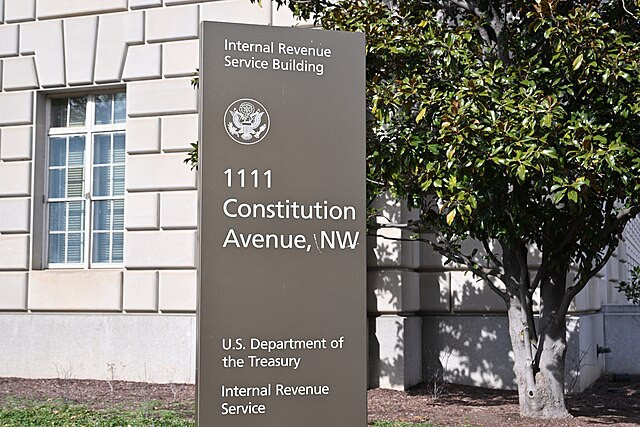The Internal Revenue Service is nearing an agreement with the Department of Homeland Security to assist Immigration and Customs Enforcement (ICE) in identifying undocumented immigrants by cross-referencing taxpayer records, according to multiple reports.
The agreement, first reported by The Washington Post and CNN, would enable ICE to submit the names and addresses of individuals suspected of being in the U.S. illegally. The IRS would then confirm the information based on its confidential tax records.
Taxpayer data, particularly for undocumented immigrants who file taxes using Individual Taxpayer Identification Numbers (ITINs), has traditionally been safeguarded by strict privacy laws. The IRS website states that undocumented immigrants "are subject to U.S. taxes despite their illegal status," and that they are permitted to file tax returns with ITINs due to their ineligibility for Social Security numbers.
The reported deal marks a sharp policy shift. Historically, taxpayer confidentiality has been closely guarded under Section 6103 of the Internal Revenue Code, which prohibits unauthorized disclosure of tax information. While exceptions exist allowing disclosure under court order for criminal investigations, sources familiar with the matter told The Washington Post that such cooperation with immigration enforcement would be "rare" and outside of standard procedure.
CNN previously reported that DHS had circulated a draft memo to the IRS earlier this year, requesting sweeping access to data, including the home addresses of several hundred thousand individuals who had paid federal taxes using ITINs. A source described the latest version as narrower, requiring requests to be submitted by DHS Secretary Kristi Noem or acting ICE director Todd Lyons, including the name, address, and date of removal orders of the targeted individuals.
More than half of the approximately 11 million undocumented immigrants in the U.S. file tax returns, often as a way to document income and payments to the government. Advocacy groups have raised concerns that leveraging this tax data for deportation purposes could undermine trust and deter tax compliance.
Two immigrant rights groups in Chicago filed a lawsuit earlier this month against the Treasury Department and the IRS, asking a federal judge to block the agency from sharing taxpayer information with ICE or DHS. The plaintiffs argued that federal law "forbids" the IRS from providing such data to immigration authorities, emphasizing that ICE and DHS are not among the agencies listed as exceptions to tax confidentiality under the statute.
The Trump administration has made immigration enforcement a central focus. On Friday, the Department of Homeland Security announced plans to revoke temporary protected status for over 530,000 migrants from Cuba, Haiti, Nicaragua, and Venezuela.
Additionally, ICE deportation operations have intensified in major U.S. cities, including Chicago and New York. The administration has defended its aggressive approach, including the recent invocation of the 1798 Alien Enemies Act to deport 137 Venezuelan migrants, despite federal court efforts to halt the deportations.
Speaking to ABC News on Sunday, Trump's border czar Tom Homan responded to questions regarding compliance with court orders. "I don't care what the judges think as far as this case," Homan said, referring to a federal judge's efforts to determine whether the administration had already ignored an earlier order to temporarily halt deportations.
Attorney General Pam Bondi also addressed the deportations during a Fox News interview, calling the effort against alleged Venezuelan gang members "modern day warfare."






